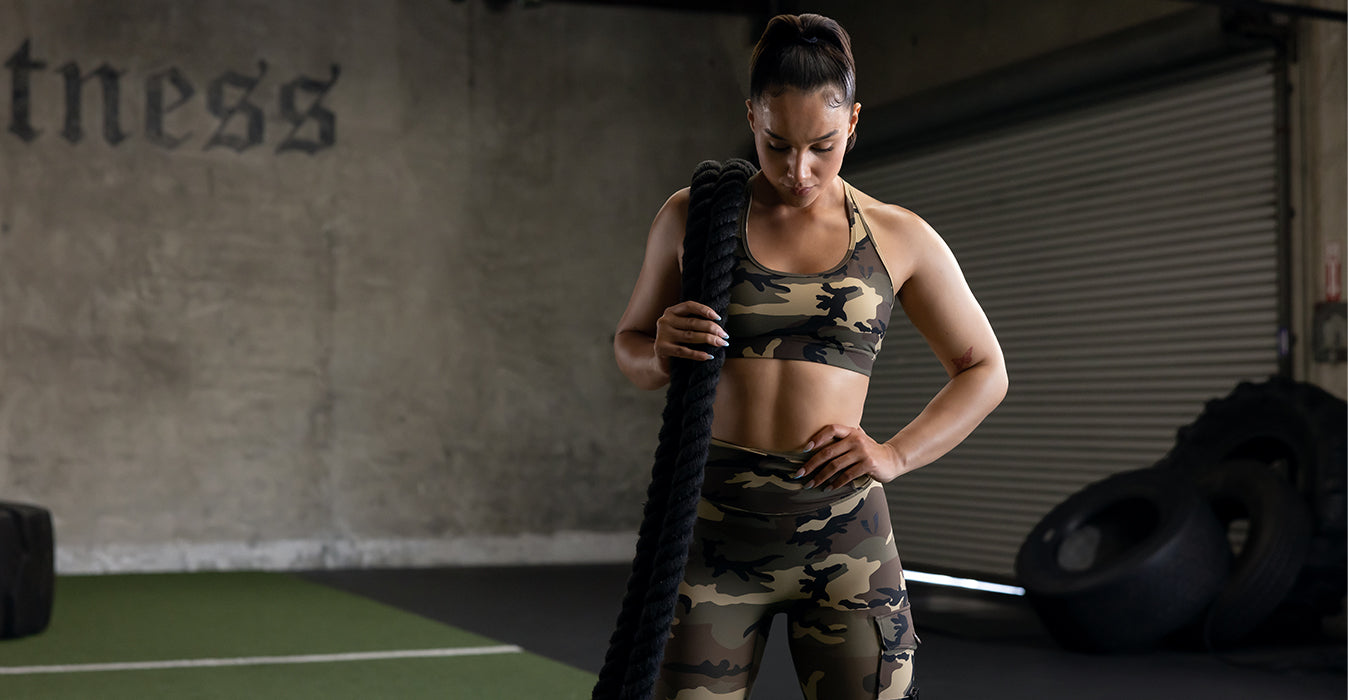
Best Tips for Female Muscle Growth: Workouts and Nutrition
Introduction
Building muscle as a woman can be a rewarding and transformative experience, enhancing both physical strength and self-confidence. While the journey to muscle growth can seem complex, breaking it down into structured workouts, balanced nutrition, and choosing supportive gear can make the process smoother.
This article covers essential tips for effective female muscle growth, with a guide on the right exercises and dietary strategies to keep you motivated and comfortable.
Section 1
Understanding Female Muscle Growth
To begin, it's essential to understand that muscle growth for women doesn't lead to a bulky physique; instead, it results in a toned, lean appearance. Muscle-building requires consistent, well-structured resistance training, proper nutrition, and recovery time.
Key Concepts:
1. Resistance Training for Muscle Growth
Women's bodies respond exceptionally well to resistance training with weights or resistance bands. This type of training effectively breaks down muscle fibers, which then rebuild stronger during recovery.
Strength training exercises such as squats, deadlifts, and lunges activate large muscle groups, making them the foundation of any effective muscle-building program. A consistent workout plan with progressive overload (gradually increasing weight or resistance) is crucial for continued growth.
2. Role of Protein and Caloric Surplus
For muscle growth, protein is essential. This macronutrient helps repair the micro-tears that occur in muscle fibers during resistance training. To build muscle, women should aim to consume 1.2 to 1.7 grams of protein per kilogram of body weight each day. Additionally, a slight caloric surplus (eating more calories than you burn) provides the energy necessary for muscle-building activities. Without sufficient energy, your body will struggle to rebuild muscle tissue and gain strength.
We Recommend These for Your Workout
Section 2
Effective Workout Structure for Female Muscle Growth
An effective muscle-growth workout should include a combination of compound exercises (such as squats and deadlifts) and isolation exercises (like bicep curls) that target specific muscle groups.
Weekly Workout Routine Breakdown
Day 1: Lower Body (Legs and Glutes)
- Squats
- Deadlifts
- Glute bridges
Day 2: Upper Body (Back and Arms)
- Pull-ups
- Rows
- Bicep curls
Day 3: Core and Cardio
- Planks
- Russian twists
- Mountain climbers
Your core is essential for overall stability, and strengthening it will improve your performance in both upper and lower body workouts. Cardio exercises like mountain climbers will also help to keep your cardiovascular health in check while burning calories to reveal the muscle definition you've built.
Section 3
Nutrition Strategies for Female Muscle Growth
A consistent and balanced nutrition plan is the backbone of muscle growth. Key elements include:
1. Protein Intake
Aim for at least 1.2 to 1.7 grams of protein per kilogram of body weight per day to support muscle repair and growth.
2. Carbohydrates for Energy
Carbs fuel workouts, ensuring that you have the energy to give your best during each session.
3. Healthy Fats
Fats are vital for hormone regulation, which can impact muscle growth and recovery. Include sources like avocados, nuts, and olive oil in your diet.

Section 4
Importance of Rest and Recovery
Rest is essential for muscle growth, as it allows muscles to repair and grow after workouts. Overtraining without adequate rest can lead to injuries and hinder muscle growth.
Key Points:
- Aim for at least one or two rest days per week.
- Get 7-8 hours of quality sleep nightly.
- Use active recovery methods like stretching or light cardio on rest days.

Section 5
The Mental Aspect of Muscle Growth
While physical training and proper nutrition are essential for muscle growth, the mental side of your fitness journey is just as important. Building muscle can sometimes feel slow or challenging, but maintaining a positive mindset is key to long-term success. Having the right mental approach can help you stay motivated, push through tough workouts, and avoid burnout.
Key Concepts:
Setting Realistic Goals:
Setting clear and achievable goals is crucial for tracking your progress and maintaining motivation. Whether it's adding a few more pounds to your squats, mastering a new exercise, or reaching a certain body composition, having a goal to work towards keeps you focused and driven. Start with short-term goals that you can easily accomplish, and gradually work towards more challenging objectives as you progress.
Staying Consistent:
Consistency is the backbone of muscle growth. It's easy to get discouraged when results don't appear as quickly as you'd like, but remember that building muscle is a marathon, not a sprint. Consistency in your workouts, nutrition, and recovery will ultimately lead to the best results. Celebrate small victories along the way, and be patient with yourself as your body adapts to the changes.
Visualization & Motivation:
Mental techniques like visualization can be a powerful tool in your muscle-building journey. Visualize yourself achieving your fitness goals, whether it's lifting heavier weights or having a more toned physique. This can help you stay focused during workouts and provide the motivation to push past challenging moments. Also, surrounding yourself with a supportive community, either online or in-person, can provide additional encouragement and inspiration.
Section 6
Common Mistakes to Avoid During Muscle Growth
As with any fitness journey, it's important to avoid common pitfalls that can slow progress or even lead to setbacks. Understanding the mistakes others have made will help you steer clear of them and make the most of your muscle-building efforts.
Key Mistakes to Avoid:
1. Not Using Proper Form:
One of the most important aspects of resistance training is proper form. Incorrect technique not only reduces the effectiveness of your exercises but also increases the risk of injury. Whether you're squatting, deadlifting, or performing upper body exercises, make sure to perform each move with proper alignment and control. If necessary, consider working with a trainer or using online resources to ensure your form is correct.
2. Overtraining:
While it's tempting to push yourself hard in every workout, overtraining can be detrimental to your progress. Your muscles need time to recover, repair, and grow. Without adequate rest, you risk fatigue, injury, and stagnation. Follow a workout routine that includes sufficient rest days and active recovery methods to avoid overtraining.
3. Ignoring Mobility Work:
Many people focus solely on strength training, neglecting mobility exercises like stretching, yoga, or foam rolling. However, maintaining flexibility and mobility is crucial for preventing injury and improving performance. Mobility work helps maintain a full range of motion during exercises and supports overall muscle health.
4. Neglecting Nutrition Post-Workout:
What you eat after a workout is just as important as what you eat before. Failing to refuel your body with the right nutrients can hinder muscle recovery. After exercising, aim to consume a balanced meal with protein and carbohydrates to replenish energy stores and support muscle repair. A post-workout smoothie with protein powder, fruits, and leafy greens can be an excellent option.
5. Skipping Warm-Up and Cool-Down:
A good warm-up prepares your body for exercise, helping to increase blood flow to the muscles and prevent injury. Similarly, a cool-down with stretching or light cardio helps your muscles recover and reduces soreness. Don't skip these vital steps, as they contribute to both short-term and long-term fitness progress.
Section 7
Choosing the Right Workout Gear for Muscle-Building Workouts
The right workout gear can make a huge difference in your training experience. When you feel comfortable and supported in your clothing, you're more likely to push through challenging workouts.
1. Supportive Sports Bras
For intense workouts, a supportive sports bra reduces discomfort, allowing you to focus on your performance.
2. High-Waisted Leggings
High-waisted leggings provide support for core exercises and ensure you're comfortable during lower-body workouts.
3. Breathable Tops
Look for moisture-wicking tops that keep you cool, especially during high-intensity sessions.
We Recommend These for Your Workout
Conclusion
Achieving muscle growth as a woman is both possible and empowering with the right mix of structured training, balanced nutrition, and quality workout clothing. Remember, consistency is key, and every small step counts towards your muscle growth journey. Let your clothing support you in style and function as you continue to push forward in your fitness goals.





Leave a comment
This site is protected by hCaptcha and the hCaptcha Privacy Policy and Terms of Service apply.